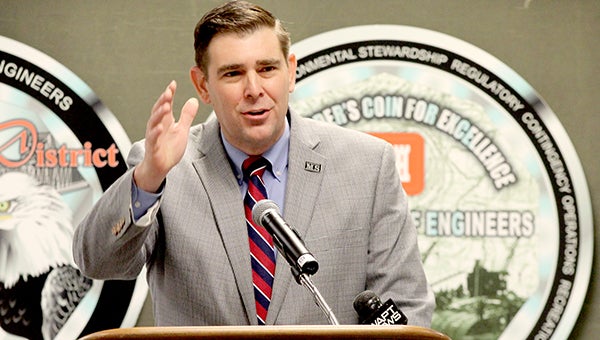State Ag Commissioner: Worker shortages threaten commerce, supply and distribution chains
Published 8:00 am Sunday, April 18, 2021

- Mississippi's Commissioner of Agriculture and Commerce Andy Gipson
For over a year, supply and distribution chains in America have been adversely affected by COVID-19 and the related workforce shutdowns.
Initially, last spring, government mandates, driven by the virus and by recommendations by the Centers for Disease Control, forced many people other than those deemed “essential workers” to stay home from their jobs. For some, work could continue remotely as workers, teachers and students adapted to virtual classrooms and other technology-based methodologies. But for the bulk of the workforce and the public relying on manufactured and processed products, these shutdowns had an immediately noticeable impact in temporarily interrupting manufacturing and distribution systems across the country, and even around the world.
I can give you one real-life example from the Mississippi State Fairgrounds.
In 2020, the Mississippi Department of Agriculture and Commerce made the decision to continue working during pandemic restrictions, including the completion of the new Mississippi Trade Mart and Coliseum renovations. As the new Trade Mart was nearing completion, the contractor was faced with major backlogs in supplies from manufacturers across America — manufacturers who had halted or slowed operations. The dividing doors for the new Trade Mart being manufactured in another state were delayed six weeks, thus delaying the entire project. But this was only a small symptom of a much broader crisis.
International trade halted or slowed. Manufacturing and food processing facilities shut down or scaled back as workers were forced home. Prices increased dramatically due to temporary shortages in products such as ground beef, coupled with higher demand. Lumber prices climbed exponentially as sawmills could not keep up with the demand of the home improvement sector.
Thankfully, most of these issues were only temporary as employers and workers adapted to find ways to keep plants open during the pandemic and eventually caught up with consumer demand.
But as a lingering effect of COVID-19, I believe there remains a far greater and perhaps more significant long-term threat. Since last spring, governors across America’s 50 states have taken vastly different approaches in terms of “reopening” states as the threat of COVID-19 has dissipated.
Some states such as California, New Mexico and New York have insisted on essential perpetual shutdowns of large portions of their manufacturing and economic sector. Meanwhile, states such as Mississippi, Texas and Florida have successfully reopened nearly completely, and employers are hiring. The problem is, in both sets of states, employers are faced with a seemingly insurmountable problem: the lack of a once existing robust workforce that is willing to return to work.
People are choosing to stay home because the federal government adopted stimulus and unemployment policies making it more profitable for some people not to work for a lengthy period of time. Many people ask the question: “Why work when the government will pay me to stay home?”
And so, jobs are not being filled. Factories are not operating at capacity. Slaughterhouses and food processing plants are not keeping up with demand. In America right now, there is a shortage of pork products – not because of COVID, but because of a shortage of workers.
The agriculture sector has faced a shortage of skilled laborers for many years, and this is an issue my office has been working on since 2019. But the issue now is much broader and impacts all of us.
Try to purchase a piece of manufactured equipment right now or parts to make a repair; chances are that delivery is severely delayed. There is a shortage of cashiers in grocery stores and other retail outlets, causing long lines and extreme wait times. Restaurants cannot serve at full capacity due to a shortage of staff. Cattle producers are experiencing delays in having livestock processed for consumption because there is a waitlist at the processor due to high demand and fewer workers.
If Americans in all 50 states are not soon motivated to return to work, and if the incentives not to work are not removed, we could see the temporary shortages of the COVID Spring of 2020 repeat themselves in construction, manufacturing and transportation, as well as food production, processing and distribution at grocery stores, restaurants and ultimately, at our dinner tables.
America, let’s all get back to work.
Andy Gipson is Mississippi’s Commissioner of Agriculture and Commerce.



